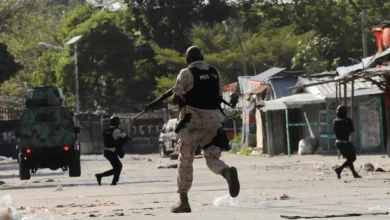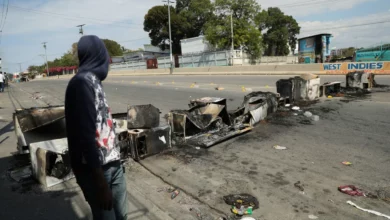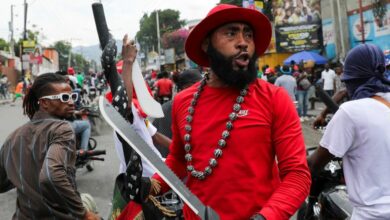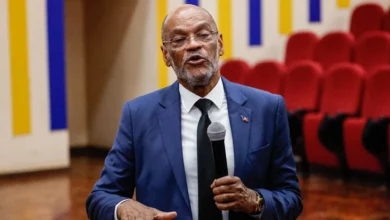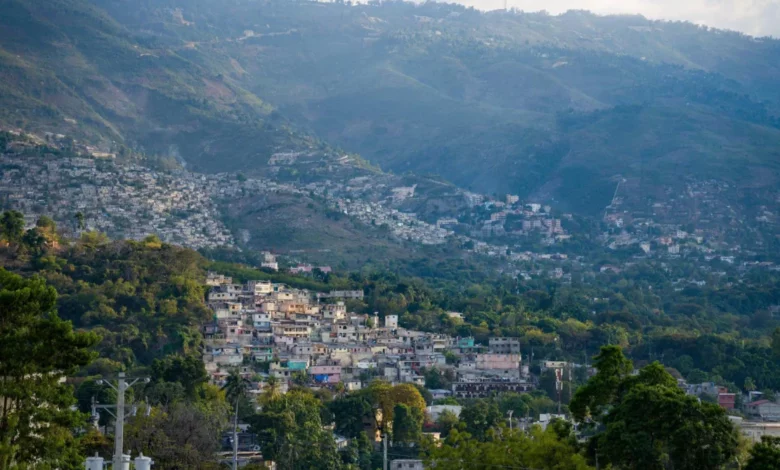
In a city silenced by gangs, everyone notices the thrum of a helicopter beating overhead in the night – a brief sign that someone very lucky has been able to leave Port-au-Prince.
CNN was able to land in the Haitian capital by helicopter on Friday after days of on-again, off-again plans that required detailed security arrangements and multiple layers of diplomatic approval. Since our previous visit to Haiti last month, the situation has deteriorated sharply. Beleaguered Prime Minister Ariel Henry announced his decision to step aside, but it is not clear who will fill the void or when. A promised transitional government has yet to materialize, and plans for a Kenyan-led stabilization force are in limbo.
Ordinary people leave their homes only rarely in Port-au-Prince these days, where daily battles between police and gangs send plumes of smoke into the air, gunshots echoing through quiet streets. Boulevards that would ordinarily be packed with cars and vendors are empty, the city’s painted “tap tap” taxis rarely full.
There are few places left to go. All roads leading out of the city are blocked by gangs, as is access to the port, and the city’s international airport has been shuttered, its walls pocked with bullet holes. Nothing is coming in either; the city’s grocery stores are running out of food. Gas stations are out of fuel. Hospitals are short on blood.
On Friday evening, gunshots could be heard ringing in the city’s hills. Lower down, a police operation was also in course in the territory of notorious gang leader and former police officer Jimmy Cherizier, also known as Barbeque.
The United Nations is working to create an air bridge between Port-au-Prince and Santo Domingo, in the neighboring Dominican Republic, that would convey vital supplies to the city. But for now, the only thing coming into Port-au-Prince are the private evacuation helicopters – a bitter reminder of the gross inequality that has plagued Haiti for decades, where most people live on less than $4 per day.
Hundreds of people are putting their names on lists to flee Port-au-Prince by air, several pilots told CNN – a small class of wealthy foreigners and diplomats with the resources and network to contemplate chartering a private flight where a single seat currently can cost over $10,000.
The helicopters can be heard regularly in the evening and early morning, residents in Port-au-Prince say, with an audible difference between the small private helicopters arriving from the Dominican Republic and larger military helicopters believed to be used by some diplomatic missions, including the United States.
No amount of money or planning can erase the danger of flying through a war zone, however, and pilots say they are increasingly wary of taking on evacuation flights. From one day to the next, it is never clear when the next flight will be possible.
Two pilots told CNN they had heard shots fired while they were performing an evacuation. “When you hear the ping, ping, ping of bullets going by, you don’t want to do it anymore,” one said.
“As far as I’m concerned, the entire city is run by gangs,” said another, showing CNN a map of the dense urban sprawl of Port-au-Prince, where he says he is unable to predict where fire might come from.
Eighty percent of Port-au-Prince is currently controlled by gangs, according to UN estimates. Haiti was thrown into crisis at the start of March, as gangs called for the resignation of Prime Minister Henry and his government. For the first time, according to security sources, rival gangs and coalitions began to wreak coordinated havoc, sharing territory for tactical advances.
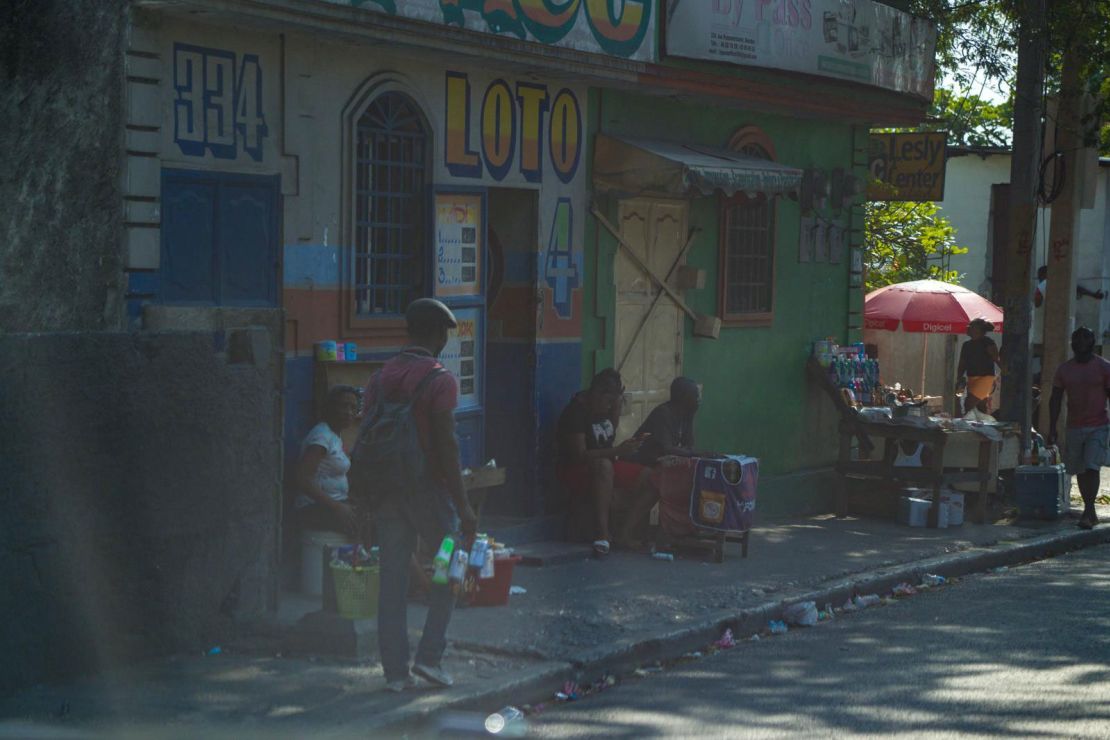
Haiti’s national police have battled back bravely, but with limited resources. They cannot be everywhere at once – and they themselves are often the targets, with several police stations attacked or burned down in the past two weeks.
Haiti’s current security crisis is the most crippling it has faced in years – a once unthinkable escalation for a country that has long suffered chronic violence, political crises and drought, leaving some 5.5 million Haitians – about half the population – in need of humanitarian assistance.
Henry came to power unelected in 2021 following the assassination of Haiti’s then-President Jovenel Moïse. His premiership has been marred by months of spiraling gang violence, which grew more intense after he failed to hold elections last month, saying the country’s insecurity would compromise the vote.
On Monday, amid enormous pressure to do something to staunch the violence in Port-au-Prince, Henry did announce his resignation. He would hand over power to a transitional council, he said. But by week’s end, the council had yet to be formed.
One last hope for Port-au-Prince may be the deployment of foreign troops to reinforce police and confront the gangs, in a mission requested by Henry, green-lighted by the UN Security Council and led by Kenya.
Restoring peace to the streets would be the first step in allowing Haiti to hold a vote and eventually elect a new government. In fact, when the worst of the violence erupted last week, Henry was in Kenya to sign an agreement to send 1,000 Kenyan police officers to Haiti.
But as chaos continues, hopes for the cavalry in Port-au-Prince are fading. Following Henry’s resignation announcement, Kenya said its forces’ deployment would be postponed, citing the Haitian government’s instability.

